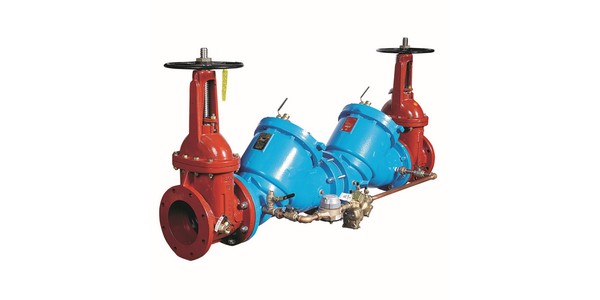Plumbing Manufacturers International Introduces Rethink Water Chapter on Building Plumbing Systems
In a new chapter of its Rethink Water initiative, Plumbing Manufacturers International is addressing the importance of “Responsibly Managing Building Plumbing Systems.”
New website content explains how these systems consist of many parts, including pipes, valves, water heaters, fixtures and fittings, pumps and drains. In well-engineered systems, these components work together to achieve the safe and efficient flow of water.
PMI CEO and Executive Director Kerry Stackpole said the content was developed to help policymakers understand how a change to one part of the system affects the other parts. “With good intentions toward saving water, policymakers in California and elsewhere want to reduce flow and flush rates below performance-tested WaterSense specifications certified by the Environmental Protection Agency,” he explained.
However, further reducing these rates may have unintended, negative consequences to other plumbing system components, making them not work as well as planned. For example, using less water per toilet flush may lead to double flushes using even more water, inadequate drain carry of solid waste, blockages in sewer pipes, and backflow into potable drinking water. Lower-flow showerheads may lead to longer showers due to the difficulty of rinsing soap from hair. Lower water flow causes water to move through pipes at a slower rate and stay inside pipes longer, potentially leading to water pathogen growth.
“And perhaps most importantly, buyers may choose not to purchase lower-flow fixtures and fittings, choosing instead to leave them on store shelves,” Stackpole said. “Any change to specifications must take the behavior and preferences of customers into account.”
PMI is in favor of working with policymakers to create robust incentives to more quickly replace older, inefficient plumbing fixtures and fittings. This approach, called legacy product replacement, is not new. The San Antonio Water System is the best example of a water utility that replaced inefficient toilets until there were no more left to replace. PMI estimates that a robust legacy product replacement initiative in California could save up to 65.3 billion gallons of water within the next five years.
PMI has found many successful programs across the nation that provided free or discounted toilets to water utility customers meeting certain qualifications, usually relating to the older toilet’s gpf and customer’s household income level.
PMI member companies consider the effects of water flow on the entire plumbing system when designing toilets, showerheads, faucets, urinals, sprinkler systems, and more for certification by the WaterSense program. Plumbing manufacturers spend thousands of hours researching, engineering and testing their products to achieve optimal water efficiency and performance.
Certified WaterSense products are at least 20% more water efficient than plumbing products meeting the federal water-efficiency standard. In addition, the products are certified by independent, third-party testing authorities to meet high performance and customer satisfaction standards.


